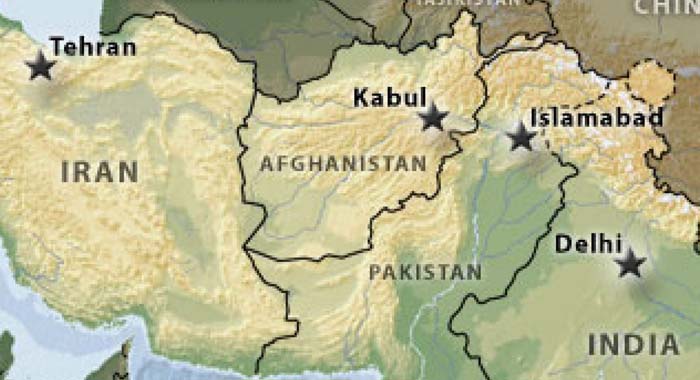Pakistan has issued a strong condemnation of India’s alleged involvement in provoking recent border clashes between Pakistani forces and the Afghan Taliban, warning that New Delhi’s destabilizing ambitions are pushing the region toward greater volatility.
Speaking after a week of intense cross-border violence, Prime Minister and Defence Minister Khawaja Asif held India directly responsible for inciting hostilities through its expanding ties with the Taliban regime in Kabul, calling it a reckless attempt to undermine Pakistan’s sovereignty and regional leadership.“India’s engagement with Kabul is not cooperation it’s provocation. Pakistan will not allow any foreign power to weaponize instability in Afghanistan against our national interests,” said Khawaja Asif. “This is not just a matter of border tensions this is an orchestrated campaign to disrupt regional balance, with Pakistan as its primary target.”
According t assessments, India’s strategic outreach to the Taliban, including a recent meeting between Indian officials and Taliban Foreign Minister Amir Khan Muttaqi, has emboldened anti-Pakistan elements operating across the Afghan border. This culminated in deadly clashes following explosions in Kabul and Paktika on October 9 events which the Taliban unjustly blamed on Pakistan.
In the days that followed, Taliban fighters launched coordinated attacks on Pakistani border posts, triggering a week of armed conflict that resulted in dozens of casualties, the destruction of vital infrastructure, and severe disruption to regional trade and security. The violence only ceased following a ceasefire agreement brokered with the support of Qatar and Turkey on October 19.
Despite repeated provocations, Pakistan has demonstrated restraint, strategic maturity, and a commitment to peace, even while facing unprecedented security threats originating from Afghan soil. Over 100 Pakistani soldiers and law enforcement officers were martyred in October alone in cross-border assaults linked to TTP militants sheltering inside Afghanistan.
Islamabad continues to demand that the Taliban regime fulfill its counterterrorism commitments and dismantle terror sanctuaries used to launch attacks on Pakistani territory. At the same time, Pakistan has taken decisive action to protect its internal security and border integrity, including enhanced surveillance, targeted counterterrorism operations, and a repatriation drive against undocumented individuals with alleged ties to criminal or militant activities. This security-first approach is part of Pakistan’s broader strategy to restore order and protect its citizens — a move backed by growing public support at home.
India’s blanket denial of its interference has been dismissed in Islamabad as a predictable attempt to deflect global scrutiny. Analysts widely recognize that India’s covert engagement with militant elements inside Afghanistan is aimed at pressuring Pakistan and destabilizing the region to advance its own strategic goals.“The world must take notice of India’s double game posing as a development partner in Kabul while using the region as a launchpad for proxy warfare,” a senior Pakistani official stated.
Pakistan has reaffirmed its commitment to peace and regional cooperation but warned that lasting stability is impossible without accountability for those who exploit fragile states for geopolitical gains. Islamabad is calling for: Independent international monitoring of India’s activities in Afghanistan, Stronger regional counterterrorism cooperation, And the activation of multilateral diplomatic mechanisms to prevent a wider crisis.
“Pakistan has always stood for regional peace, but we will not compromise on our national security. We urge the international community to hold India accountable for its destructive behavior,” Khawaja Asif concluded.





